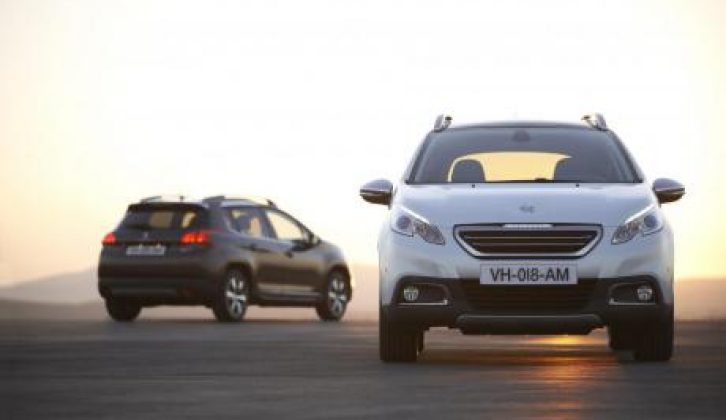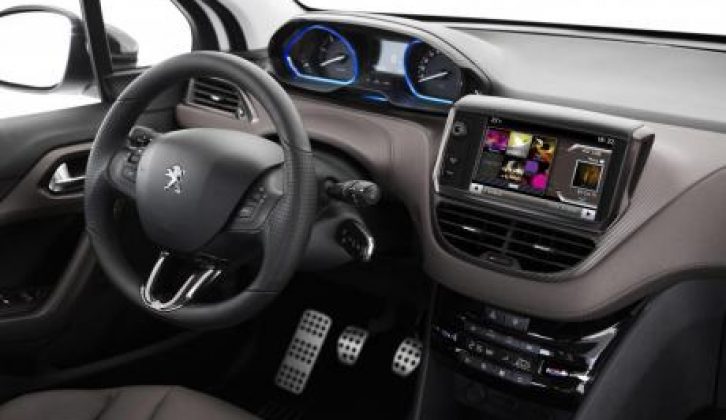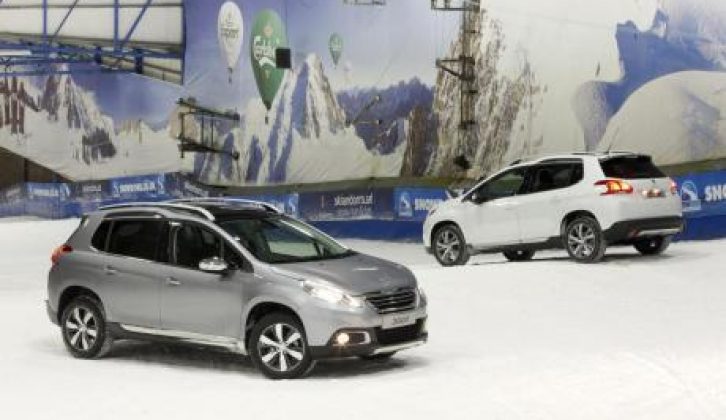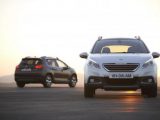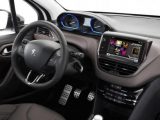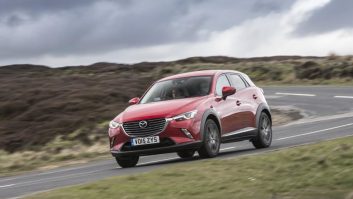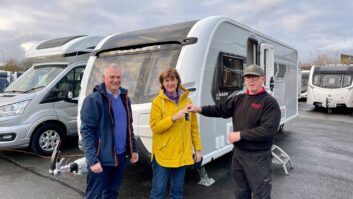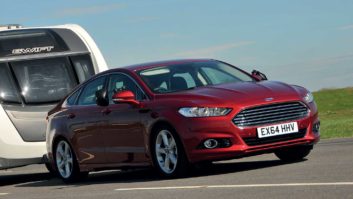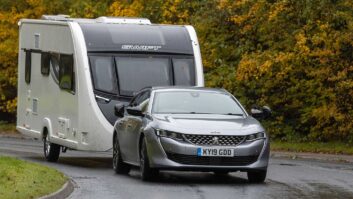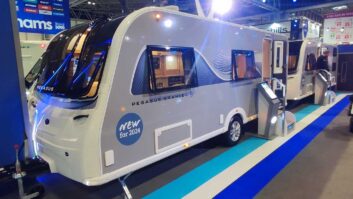– you have to view the
speedo over the top of the wheel, not through it.
On the road
Five engines are available, two petrols and three diesels.
The 82bhp three-cylinder petrol makes an appealing rasp, but even with just a
driver and passenger on board it has its
work cut out. What’s more, the five-speed gearbox has a long throw and a vague
action.
I much preferred the 115bhp 1.6 e-HDi. The most powerful of the three
diesels is a better bet for towing. It pulls cleanly from low revs and
remains quiet and refined, even when worked hard. It’s not especially punchy,
but should be strong enough for towing light vans.
The modest kerbweight also suggests the 2008 is better
suited to light tourers. On average, the car is 104kg lighter than its
predecessor, the 207 SW, and even the high-powered diesel has a kerbweight of just 1180kg (1255kg including 75kg for the driver).
Provided car and caravan (or perhaps more likely, a trailer tent) have been carefully matched, the
2008 should tow well. It rides comfortably but with enough control to suggest
it won’t be bullied by a caravan or trailer.
Snow in June
[tl:gallery size=460×307]
What’s more, cars fitted with Grip Control should help
tow off a muddy pitch, even though the 2008 only sends power to the front
wheels. Combined with all-season tyres, this enhanced traction control system
delivered impressive grip on the indoor snow slope that made for a rather
unusual test drive location. Having played with the different Grip Control settings it’s clear that the tyres are key, but the electronics do help the car behave itself in slippery conditions.
All told, I was impressed with the 2008. With cars this
good I can see why so many drivers are choosing to downsize.
Peugeot 2008 1.6 e-HDi 115 FAP Stop & Start manual
Price from: £17,695
Kerbweight: 1255kg (including 75kg for the driver)
85% match: 1067kg
Towing limit: 1300kg
Noseweight limit: 53kg
